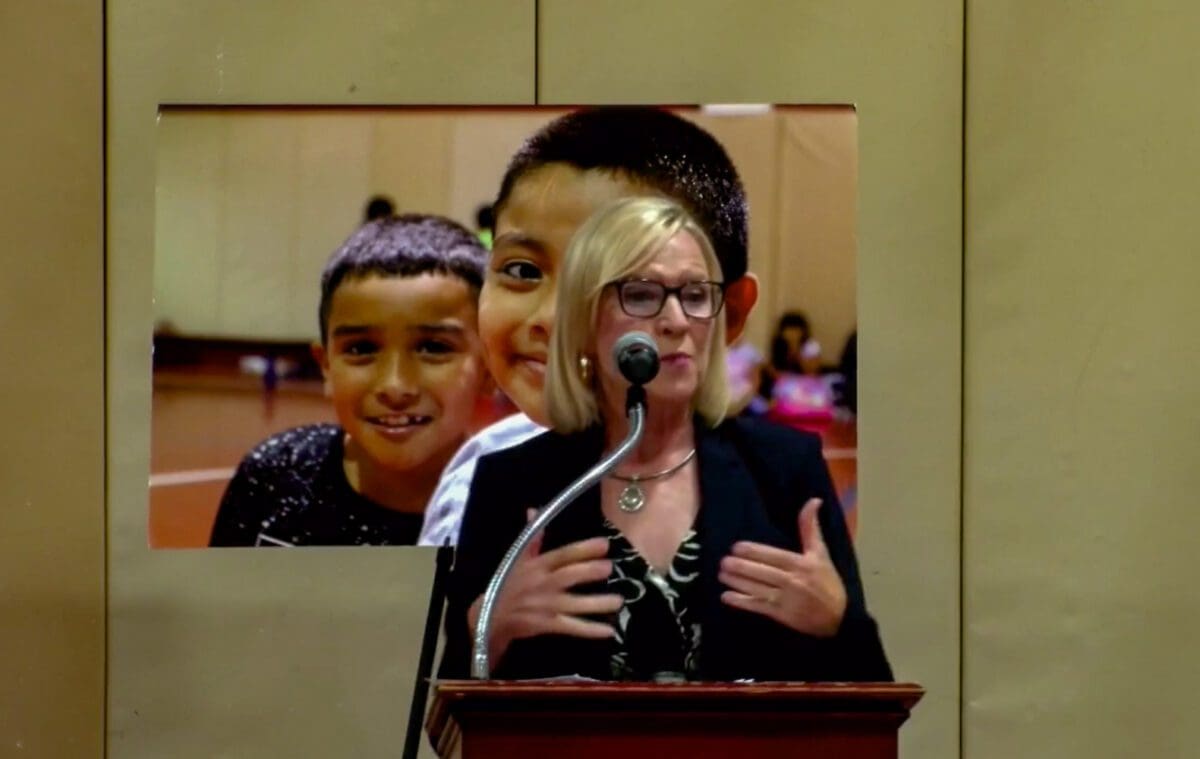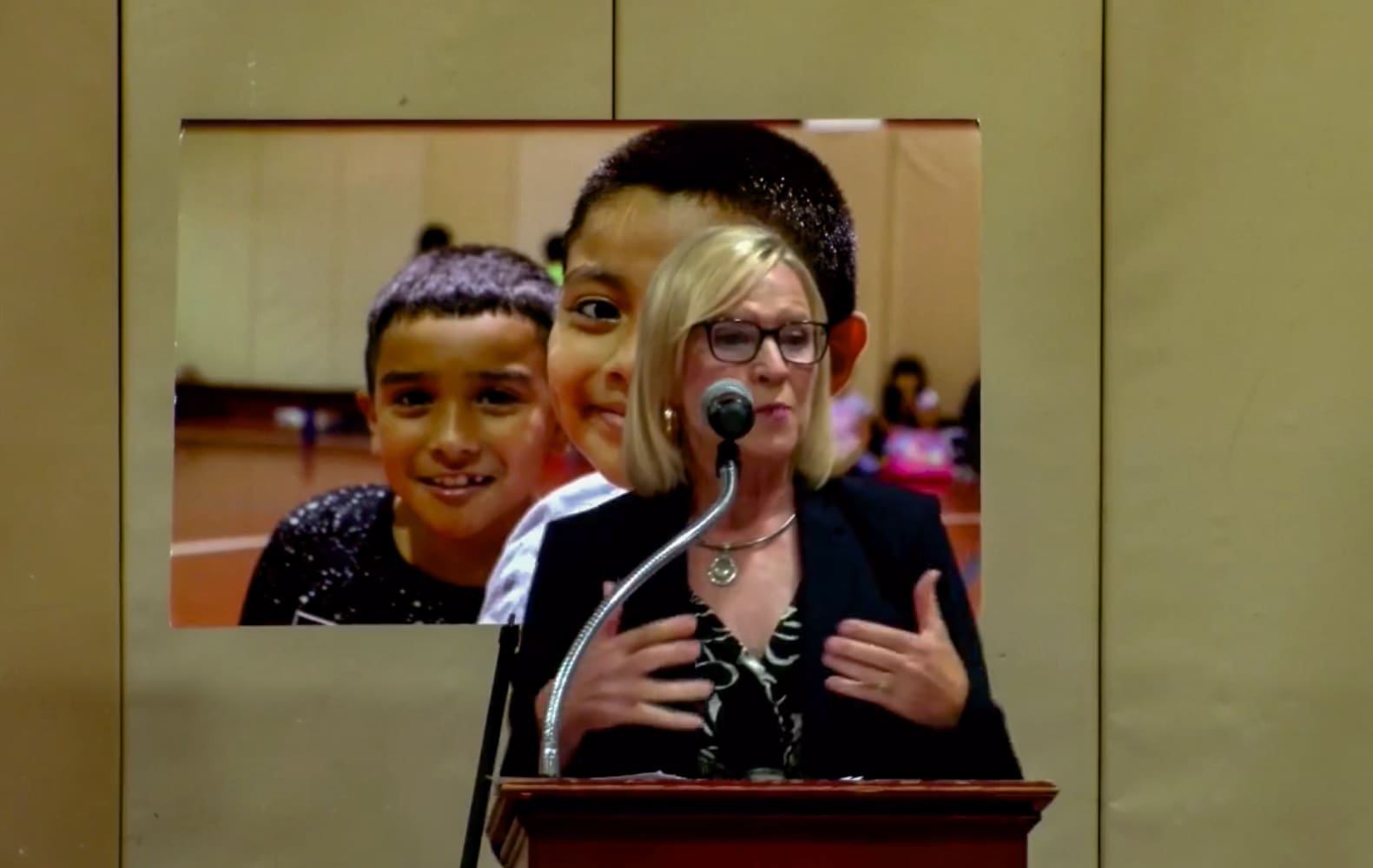Generally praising Delaware’s investments in early childhood education, a state panel also said “a tremendous number” of underserved children don’t have access to it because of a lack of teachers and the cost of childcare.
That puts them at a disadvantage when they go to kindergarten, said the final report from the Delaware Early Childhood Advisory Committee.
The teacher shortage is affecting the state’s ability to implement its programs and contributing to the lack of equity, said Dan Wuori during the committee’s press conference Monday.
He is senior director of early learning at the Hunt Institute, a North Carolina education nonprofit that worked with the committee.
The state’s “concrete and tangible progress” will come to fruition, he said, if it can eliminate the teacher shortage, an issue the state is tackling in several ways.
Already, schools are offering alternative pathways into classrooms for teachers, and a state committee is talking about rapidly increasing teacher pay to compete with other states.
The report also indicated that Delaware needs to focus on children’s health, developmental and mental health needs. And it called for families to be an integral part of that process.
Much of the early learning that the report talks about involves day care programs that workers need to be able to go to their jobs.
House Minority Leader Mike Ramone, R-Pike Creek South, pointed to bipartisan support for early childhood education and said he likes that the state is paying so much attention to the first stages of education.
“The effort to do something to help enhance the quality, the accessibility and flexibility of people being able to participate in the early education world for their children is extremely important,” he said.
He thinks this will help rectify the decline of public education that the First State has experienced in the last decade.
“I’m so saddened by the catastrophic failure of our education system and how every time we try to make excuses and then we do something, but we end up scoring even lower and we do even worse,” he said. “Maybe this preparation at these early ages with quality, locations and environments will create a better prepared child for when they enter kindergarten, so I’m optimistic and I’m hopeful.”
During Monday’s press conference, several mothers said that child care was not affordable or even available when they had children.
The issue became a crisis during the pandemic when child care facilities closed or had trouble having enough workers to take care of children.
The state stepped in to use federal money to keep them open, especially for essential workers, but the lack of child care has not eased up in recent months. Even when it is available, it’s out of some lower-wage workers reach so some potential employees are staying home with their children.
Gov. John Carney alluded to that last week when he introduced his state budget for fiscal year 2024, which starts July 1. It included expanding a state program that helps lower-wage earners pay for child care so they can go to work.
He hopes it will help put more people into Delaware’s job market, which in December had about 35,000 jobs open with only 21,000 seeking employment.
Commitment to early education
Lt. Gov. Bethany Hall-Long highlighted the childcare investments and initiatives that Carney announced last week:
- Investing more than $10 million in childcare programs and raising the income limits of parents who can qualify.
- Changing eligibility for those who use the state’s Purchase of Care program for help with childcare to 200% of the poverty level, reaching more children.
- Double funding the Early Childhood Assistance Program to $12.2 million, to serve more 3- and 4-year-olds, and provide programs with more resources.
- Allocating funding for House Bill 33 to lower preschool special education student-teacher ratios.
- Utilizing the $8 million federal Preschool Development Grant to help strengthen and expand the state’s early childhood infrastructure to infants and toddlers.
RELATED STORY: Carney: State will focus on jobs, schools, safety
Hall-Long said Carney’s investments will allow Delaware to double the number of children who will have access to childcare.
“We’re working hard on integrating those systems and those resources,” she said. “I challenge not only those here, but those listening to get behind what I consider the most important legacy item a state or any state can do, and that is early education.”
The programs should specifically help workers in Kent and Sussex counties because there are fewer early childhood facilities in those areas than in New Castle County, and they can cost parents more than $20,000 a year to enroll.
“Investing in Kent and Sussex counties means that we can start to address the childcare deserts and fill the gaps in care where families need them most,” said Sen. Kyle Evans Gay, D-Arden, said during the Monday press conference.
Ramone acknowledged that other successful countries and systems put a lot of value on setting a good foundation for learning as early as possible.
“We can solve two problems at once,” he said, “By creating an environment where children can get an education at a younger age and enable their parents to maybe get back into work during those hours to enhance the workforce.”

Raised in Doylestown, Pennsylvania, Jarek earned a B.A. in journalism and a B.A. in political science from Temple University in 2021. After running CNN’s Michael Smerconish’s YouTube channel, Jarek became a reporter for the Bucks County Herald before joining Delaware LIVE News.
Jarek can be reached by email at [email protected] or by phone at (215) 450-9982. Follow him on Twitter @jarekrutz
Share this Post





